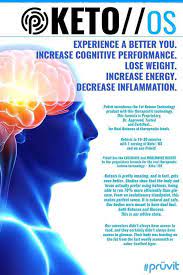The ketogenic (keto) diet has gained immense popularity in recent years for its potential weight loss benefits. But beyond the scale, how does this high-fat, low-carb diet impact our most vital organ - the brain? Let's look into the profound connection between the keto diet and the mind.
Potential Treatment for Epilepsy:
The keto diet's origins are rooted in its therapeutic use for drug-resistant epilepsy, especially in children. The diet's ability to reduce the frequency and severity of seizures is well-documented, though the exact mechanisms remain a topic of research.
Enhanced Brain Energy:
The primary goal of the keto diet is to shift the body's metabolism from burning glucose to burning ketones, primarily derived from fats. This metabolic state, known as ketosis, provides an alternative energy source for the brain – ketone bodies. Some studies suggest that ketones are a more efficient energy source than glucose, potentially boosting cognitive function.
Neuroprotection:
Ketones have been shown to have neuroprotective effects. They can reduce oxidative stress and inflammation in the brain, which are linked to neurodegenerative diseases like Alzheimer's and Parkinson's.
Mood Stabilization:
Many individuals on the keto diet report improved mood and reduced symptoms of anxiety and depression. This could be due to the stabilization of blood sugar levels, which can influence neurotransmitter and hormone levels associated with mood.
Improved Focus and Concentration:
With a steady supply of energy from ketones, many keto dieters report enhanced focus, clarity, and concentration. The elimination of sugar spikes and crashes can lead to more consistent brain function throughout the day.
Brain Growth and Development:
Ketones can stimulate the release of brain-derived neurotrophic factor (BDNF), a protein that supports brain growth, neuron function, and synapse formation.
Cognitive Longevity:
While research is ongoing, some studies suggest that the keto diet might play a role in preventing cognitive decline and enhancing cognitive longevity.
Reduced Brain Fog:
The consistent energy supply from ketones can help reduce the brain fog that many people experience on a high-carb diet.
Appetite Regulation:
The keto diet can influence the brain's hunger-regulating hormones, like ghrelin and leptin, leading to reduced appetite and more mindful eating habits.
Challenges and Considerations:
While there are many potential benefits, it's essential to note that the keto diet might not be suitable for everyone. Some people report initial challenges like the "keto flu," which can include symptoms like headache, fatigue, and irritability. It's crucial to consult with a healthcare professional before making significant dietary changes.
The keto diet's impact on the mind and brain is profound, offering potential benefits ranging from enhanced cognitive function to mood stabilization. As with any diet, individual experiences may vary, so it's essential to approach the keto lifestyle with mindfulness and knowledge.



No comments:
Post a Comment